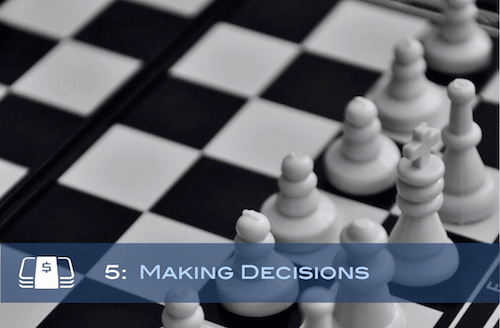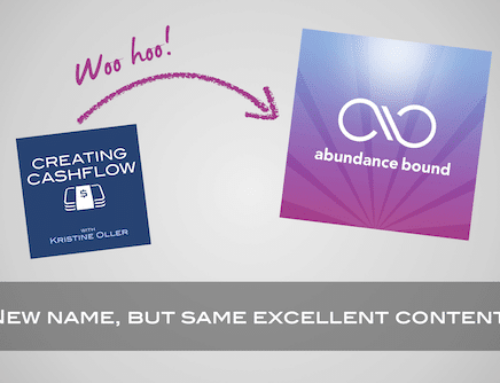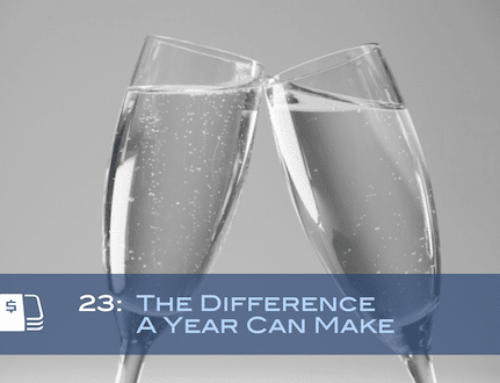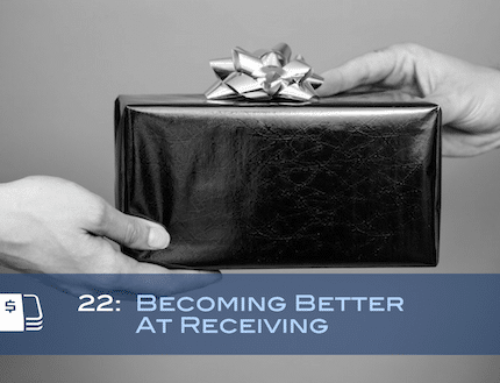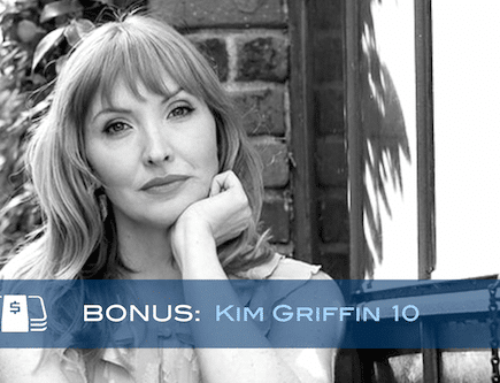Today we’re going to talk about making decisions.
This is such an important topic because getting good at business, getting good at creating cashflow requires getting good at making decisions. And by “getting good at” I mean growing into someone who is able to make choices with some degree of speed and confidence.
To help accelerate your growth, I’m going to offer you four suggestions – each of which, if utilized, will save you oodles of time and energy as you create more cash.
listen
To download the audio, click the little icon of the arrow in the square that’s right above.
5: Making Decisions
Hi there, I’m Kristine Oller and this is Creating Cashflow episode five. Maybe you’re listening because you have a little biz but now want to make it as streamlined and profitable as possible or maybe you’re listening because you’ve been wondering if there’s something you can make, share or do that someone would actually pay you for – either way, this podcast is here to help.
Today we’re going to talk about making decisions.
This is such an important topic because getting good at business, getting good at creating cash flow requires getting good at making decisions. And by “getting good at” I mean growing into someone who is able to make choices with some degree of speed and confidence. Because usually the longer you delay decisions, the more stagnant you and your cash flow become. And we don’t that. So, in just a minute I’m going to share with you four things that will help you make swift, confident choices.
But right now, let’s examine the qualities of speed and confidence a little closer…
First, let’s talk about speed.
We can both agree that all decisions are not the same – they range from fairly inconsequential (like what size post-it notes you should buy) to momentous (like who you want to bring on as a business partner). Because not all decisions are the same, the speed at which you make them will differ as well. That said, you will have an easier time creating cash flow if you can avoid the ends of the decision-making spectrum – you want to break any habits you may have around making decisions too quickly or too slowly.
Too quickly usually means you are being impulsive. An impulsive decision is one propelled by a desire to alleviate a feeling of discomfort (you simply choose whatever will make the tension of discomfort go away the fastest!), or you make a choice in reaction to something or someone outside yourself – like pressure from your family or advisors (you make whatever choice will get them off your back). An impulsive decision is usually fueled by anxiety and it feels very different from when you spontaneously take an inspired action that pops into your head and is fueled by flow and enthusiasm.
Too slowly means you are dragging your feet. Sometimes this is because you want to wait long enough for life to make the choice for you. Rather than deciding what you need to decide you decide to not choose and just see what happens – which is still you making a decision, it’s just a decision that eats up a lot of time while you wait it out. Another reason you might be postponing making a choice is because you are stuck in the spin cycle of your thoughts – the only thing moving is the relentless swirl of concerns, fears, and hopes sloshing through your mind. The spin cycle also eats up a lot of time as well as a lot of energy.
Keep an eye on yourself – when a decision comes up, notice if you tend to retreat to ether extreme of the speed spectrum. If you do, then definitely utilize the guidance that I will be sharing with you in a moment to practice making swift, conscious choices. Swift, conscious, confident choices.
Yeah, let’s talk about confidence.
Confidence doesn’t come from knowing that the decision you are about to make is definitely, absolutely the right one for you. Confidence come from knowing that, if the result of your decision turns out to be less than optimal, you can pick up the pieces and change course. Occasionally circumstances are such that you won’t have all of the time, or information or perspective or experience that you feel you need before you have to make a choice. So confidence is less about having confidence in your decisions, and more about having confidence in yourself and your abilities to handle whatever unfolds from the decisions you make.
You create confidence my making decisions… and then noticing if you explode and die. If you don’t explode, you realize that you lived through the results of your decision which then makes you a little less nervous and a little more confident for the next decision. After making lots of decisions, eventually, you will BE confident, you will KNOW, that you won’t explode.
In an effort to help you become someone who is able to make swifter, more conscious, more confident choices, I’m going strongly suggest that you embrace the following 4 decisions today:
First, decide to learn, accept, and trust how you are naturally wired.
We are all wired differently. We are all wired to think, respond, react and relate to life in significantly different ways. This is what makes being part of the human race both a truly magnificent and truly maddening experience.
Personally I love gathering input that gives me little pieces of insight regarding my natural inclinations and motivations. Here’s a little window into my wiring – I “am” – and I’m putting quotes around the “am” because we are all more than the sum of our parts – but as far as systems and tests go, I am:
an INTJ
an Enneagram 3
a 6-7-8-1 on the Kolbe scale
my Fascinating index is Prestige and Power
my Clifton Strengths are Achiever, maximizer, relator, visionary and strategist
I’m a Ravenclaw
and I’m a Sagittarius moon, Pisces sun, and Pisces rising
I’ll leave some links for you to explore you self in the show notes. But what I’m trying to illustrate is that we each process and interpret the world differently. This is such an important thing to understand. Knowing this – about yourself and about others – allows you to have more empathy and compassion towards others and also towards yourself.
Decisions require you to make a choice between two or more things. When faced with options, some folks are wired in a way that makes all of the options seem to have the same weight. They all seem equally important. So they get stuck choosing between them – or to choosing which to do first.
Other folks are wired to clearly see the vision of where they’re headed but they get frustrated by the amount of decisions that need to be made between here and there so they get stuck in a feeling of overwhelm (that can possibly even prevent them from starting).
Other folks, because of their wiring, are not that in touch with their gut instincts so making choices – especially without enough space and time to get their bearings and thoroughly assess the options – feels more intensely risky for them.
Other folks are sincerely concerned by what other folks will think of their choices – and this is not necessarily a sign of weakness, it’s most often because they are naturally wired to be very relational.
Other folks equate “choosing one thing” with “losing the thing or things not chosen,” and they fear having to feel the discomfort or pain that that loss might bring.
Our similarities and differences are a fascinating and complex part of our human experience. Growing in your understanding and acceptance and trust of the particular ways you are wired is valuable with regards to your cash flow for two important reasons:
Number one: When you are aware of your natural wiring you can stop expending so much energy judging HOW you are inclined to make choices. You are wired how you are wired. It’s no better or worse than how someone else is wired. Everyone experiences upsides and downsides to their wiring – including me – but any energy you spend beating yourself up over your wiring is energy you don’t have to put towards your cash flow goals.
The second important reason is that when you are aware of your natural wiring around making choices you can more easily identify the type of support that will help you make the decisions that need to be made. Remember that a wise person is not someone who doesn’t need any help – a wise person is someone who knows the type of help they need and then gets it. We can’t change our fundamental wiring but we can elevate it – we can lean into our wiring’s strengths and work more in harmony with them, instead of just letting our wiring get in our way.
Second, decide to stop worrying about making the wrong decision.
Worrying makes you feel like you are actually doing something but worrying is merely energy down the drain. And I know from experience that it’s a very difficult habit to break – but I also know from experience that it IS breakable. Put in the time and effort and you can greatly reduce the energy you spend fretting even if you are naturally wired to be anxious, you have the ability to soften the edges of that trait.
Worrying about making the wrong decision is useless because the fact is in your process of successfully creating cash flow you will make wrong decisions. If ya haven’t made any yet, they’re coming. They are unavoidable. I’ve made many. And many of them have cost me money. But ALL of them were learning and growth experiences. Did I want to learn and grow that way? No, I did not. Who does?
But circumstances are such that sometimes you have to make a decision before you are 100% ready. You have to consider what you do know and then go with your gut… or take a leap of faith… or lean on someone else’s advice.
And sometimes it won’t work out. But that’s not the worst thing.
The worst thing is not that you made a wrong decision.
The worst thing is not even the energy you’ll hemorrhage by beating yourself up over it. (Although that is pretty bad and unnecessary. There’s no need for that – don’t do that.).
No, the worst thing is if you immediately flee from the disappointing or painful or costly experience rather than taking a minute (before you flee) to dig around in that muck to gather whatever knowledge you can gain from it. The worst thing is that you don’t learn from it so you end up repeating it.
Third, decide to stop polling.
I know folks who can’t or won’t make decisions without asking everyone they know. They hop around taking indiscriminate polls on personal and professional issues hoping a clear consensus will form with a majority of folks agreeing that “we think you should do this.”
But crowd sourcing your way to the “right” choice doesn’t work very well. What usually happens is the more people you ask the more muddy the waters get. You have people telling you what they think you want to hear, or giving you advice based on their own agenda, and you get feedback that conflicts with your intuition and in the end it usually ends up about 50/50 anyway and you’re more confused than ever. Plus you’ve just spent a lot of energy that you can’t ever get back.
Polling can seem like a way to avoid shouldering the responsibility or consequences that may come with being “the decider.” But in order to create cash flow for yourself, you have to become the decider.
So, when you have an important decision to make, it’s perfectly fine and sometimes very smart to get some input and guidance on it. I recommend limiting that input though. Limiting your input forces you to choose your sources wisely. I usually select three people – or I take it to one specific group that I’m part of like a class or community or mastermind group – and collect the opinions from these trusted sources.
Then it’s about considering what they say, processing their advice through your own gut, and making the decision.
Fourth, decide to utilize a filter when making choices.
Finally, the fourth decision that you can embrace today that will help you make swift, conscious, confident choices is to decide to use a filter when making choices.
A filter is something that helps you see this decision that you have to make in a new or more helpful way. So picture yourself standing on a beach on a bright, sunny day. Without wearing anything in front of your eyes, you can see the beach but you are also probably squinting from the sunlight. Put on a pair of sunglasses and your eyes can relax and you can view the beach in a much more pleasant way and the colors change a little bit. The sunglasses are a filter for your eyes. Now, replace those sunglasses with binoculars and now you can see the beach in a whole new way – you can clearly see the boats and swimmers and birds that are far from shore. Cuz you are looking through a different filter. Put on swimming goggles and now everything below the water can be seen in a whole new way. Because you’ve used these filters to see the beach from several different perspectives, my guess is it would be easier for you to make a decision about what you wanted to do at the beach that day.
There are lots of filters you can utilize in different situations to help you make choices – the following three will get you started.
When you are caught in a mental spin cycle – with all the pros and cons of a choice sloshing around in your brain, you can utilize the filter of your body to help you make a decision. This filter is especially helpful for people like me who like to live life inside my head. There is solid science that backs up the fact that your body – your gut specifically – has more than 100 million nerve cells that make it pretty much a second brain. So quiet down, breath deeply, and tune into what your body feels like as you think about each of the option that you are trying to choose between. Your body may give you little hints – or you know, very clear signs – that it prefers one option over all the others. Another version of this exercise, is to go through an entire day focused on one of the options – thinking about it as if you had already pick it. And then spend another day tuned in to what having picked the other option feels like. How does your body responds to the idea of you having made each choice? Does it feel lighter or heavier around a particular option? Liberated or nauseous? Excited-slash-nervous or remorseful? Your body may not talk you, but if it does, it won’t lie.
A filter I used a lot as an organizer is one I call “changing the criteria.” This filter is especially helpful when all of your options feel equal – when you are having a tough time ranking or prioritizing them. For example, let’s say you have 12 pairs of jeans but you’ve decided you really only have room to keep six pairs. But you are having a very difficult time deciding because you keep looking at the jeans and thinking: “they are all good jeans. I can’t get rid of any of them because they are all good.” Then I’d would say to you, “Okay, if that’s true, they are all equally good then we can no longer use “good” as the criteria for making the choice. We now acknowledge that they are all good jeans so let’s change the criteria to “comfortable.” How do the 12 pairs of jeans rank in terms of comfort? With this new criteria in mind, the jeans don’t seem so equal anymore and you are able to eliminate the least comfortable pairs leaving us with eight pairs of jeans that are all equally good and all equally comfortable. Therefore, we must change the criteria again. We’ll continue ranking the jeans based on which are the most versatile or the most stylish or the most expensive – and we’ll keep changing the criteria until we whittle your collection of jeans down to only four pairs.
In terms of cash flow, if you are trying to decide between several ideas for a new income stream, you might use the change the criteria filter to rank your ideas in terms of which you think might be the most fun, most lucrative, simplest to start, easiest to market, lowest overhead, etc. Perhaps you will see one of the ideas consistently pop up near the top of these rankings.
A third filter is to focus on the end result that you desire. This filter is one that can help you come up with alternatives – sometimes better alternatives – beyond the options that you are stuck deciding between. For example, a few weeks ago a colleague of mine said that he wanted to host a virtual 3-day event. Great. We hashed out a structure for it that he felt really good about and off he went. Last week, he checked in with me because he was worried that the only dates he had available to do the event didn’t give him a lot of time to prepare and market it. We sat there for a bit bouncing between the pros and the cons of doing it or not doing it – but each side felt equal – we knew he could pull it off, but we could see it would be exhausting, etc. So then I applied the end result filter. What was the end result he wanted? What result did he want this virtual event to produce? His main reason for doing the event – would be to increase his audience, to get new subscribers and new followers. Okay, so, we shifted our focus to brainstorming other types of things he could do to achieve that result. Suddenly we were no longer in a spin cycle around should he or shouldn’t he do a virtual event – now we had two new ideas plus the virtual event idea and it became a different kind of decision to be made – and an easier one because one of our new ideas was just clearly better for him and his schedule than the virtual event.
Growing into a person who can make decisions more swiftly and confidently starts with a commitment to thinking and acting differently. These four suggestions – to accept and trust how you are wired, to stop worrying about making the wrong decision, to stop polling, and to utilize filters when making choices – are each things I had to learn how to do. And if I can learn and practice them, I know that you can learn and practice them too.
That’s plenty to ponder for this week I’m so glad you decided to join me (see what I did there!) – and I wish you the very best. Oh and, if you want to send me a Cashflow question you can do so by using the contact form at kristineoller.com with the subject line Cashflow. And special shout out to Dawn Davis for being the first brave soul to leave a glowing review of this podcast on iTunes – reviews are so appreciated and they certainly help to let even more folks know that this resource exists. Thank you Dawn – it made me so happy when I discovered it!
———-
Creating Cashflow is a podcast, a course and a community that exists to guide and support you through the process of generating supplemental streams of income to help fund the life you want to live. We welcome those of you who are just starting out and we welcome those of you who have a biz but now want to make it as streamlined and profitable as possible. Three times each month I roll up my sleeves and do deep dive group coaching sessions with the Cashflow members to help them apply the info in the course to their specific circumstances.
A great place for you to start is with my free online workshop – Creating Cash When Times Are Tough. You can watch the video or listen to the audio or read the transcript. When you access this workshop you also access a page where you can buy the entire course at a very special price. That’s at KristineOller.com/cashflow.
The show notes for this episode are at KristineOller.com/podcast
And if you feel inspired to share this episode with someone special, follow through on that inspired action!
featured
Host:
Kristine Oller
Music:
Pictures of the Floating World
Featured:
Meyers Briggs
Enneagram
Kolbe
Fascination
Clifton Strengths
Sorting Hat
Astrology
Photo:
Jawad Jawahir
